The Scottish Brew Crew

Having just returned from our expedition through the beautiful Scottish Highlands and Argyle Coast, I had this week’s topic well in mind and ready to start investigation.
(Just one more post on Scottish-based drinks, then I swear I’ll stop… probably.)
I was all set to dig into the topic of the Scottish craft brewery scene. We had some really delicious craft brews while over there and I was intrigued by some glaring differences in brewing culture from here to there.
However, when I sat down this week to do some digging, I couldn’t find a lot of specifics on the whole shebang! I could find a plethora of information on the history of Scottish brewing, but I couldn’t find current information; nothing on projections or distribution or the large recent uptick in small breweries.
So to get at least a fairly good picture of the current beer landscape in Scotland, let's take a look at the history alongside some of the observations Matt and I made while sipping pints around the country.
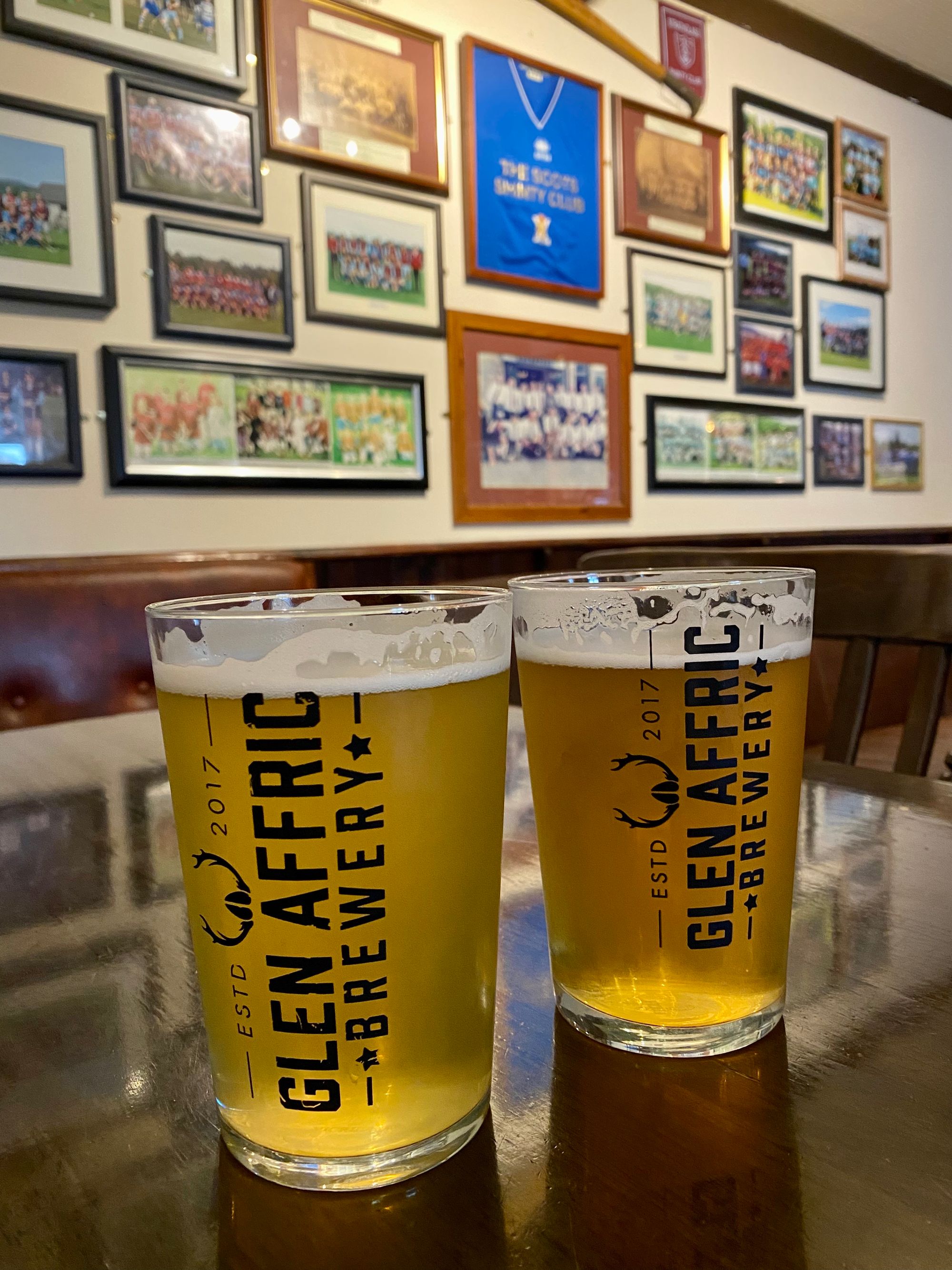
Setting the Scene
Scotland is definitely most well known for its whisky, but the history of beer in the region goes back much, much further, actually.
Evidence of brewing was discovered in the small village of Skara Brae on Orkney, a small Scottish archipelago. Stone buildings dating back to the Neolithic/Stone Age, about 5,000 years ago, show signs of being used for cereal processing, including, malting, mashing, and fermentation.
So a version of beer, not whisky, earns the title of first alcoholic beverage in Scotland. Mainly because I don’t think they had pot stills 5,000 years ago…
From the Orkney starting point through history, Scottish brewing then follows a path we’ve heard before: It was dominated by the monastic life in the 15th century, domestic brewing took over through the 17th century, then public houses and commercial brewing took over in 18th and 19th centuries. The number of breweries peaked in 1840, totaling 280 at the time, and then that number sharply declines in the early 20th century, world wars and the temperance playing the leading roles in the decline. However, it continues to decline through the 1960s and by 1970 there were just 11 breweries left in the whole country.

On Stage Today
That all leads us up to today. There are now about 100 craft breweries throughout Scotland, and to me it did not seem like the bubble was close to bursting.
I do have a few informal observations of my own from the last few weeks traveling around the Highlands. From our time visiting breweries and sipping pints in between hikes, there seem to be a few stark differences in craft beer culture between America and Scotland.
First, spacious breweries with big tasting or tap rooms and fancy pub food really aren’t a thing in Scotland. In the U.S. I think it’s pretty common for even small craft breweries to open their doors to the public and have at least a make-shift tap room available during specific hours, with perhaps a food truck around on the weekends or take-n-bake pizzas ready to be thrown in the pizza oven. And it’s even more common to have big, clean tap rooms with board or yard games, event space, and a beer garden.
Well, in Scotland when we rolled up to one of these small craft breweries we essentially pulled into a small family farm. There were sheep right next to the small dirt parking lot, and a small one-room shop built into one of the out-buildings, stocked to the ceiling with bottles, cans, and merch.
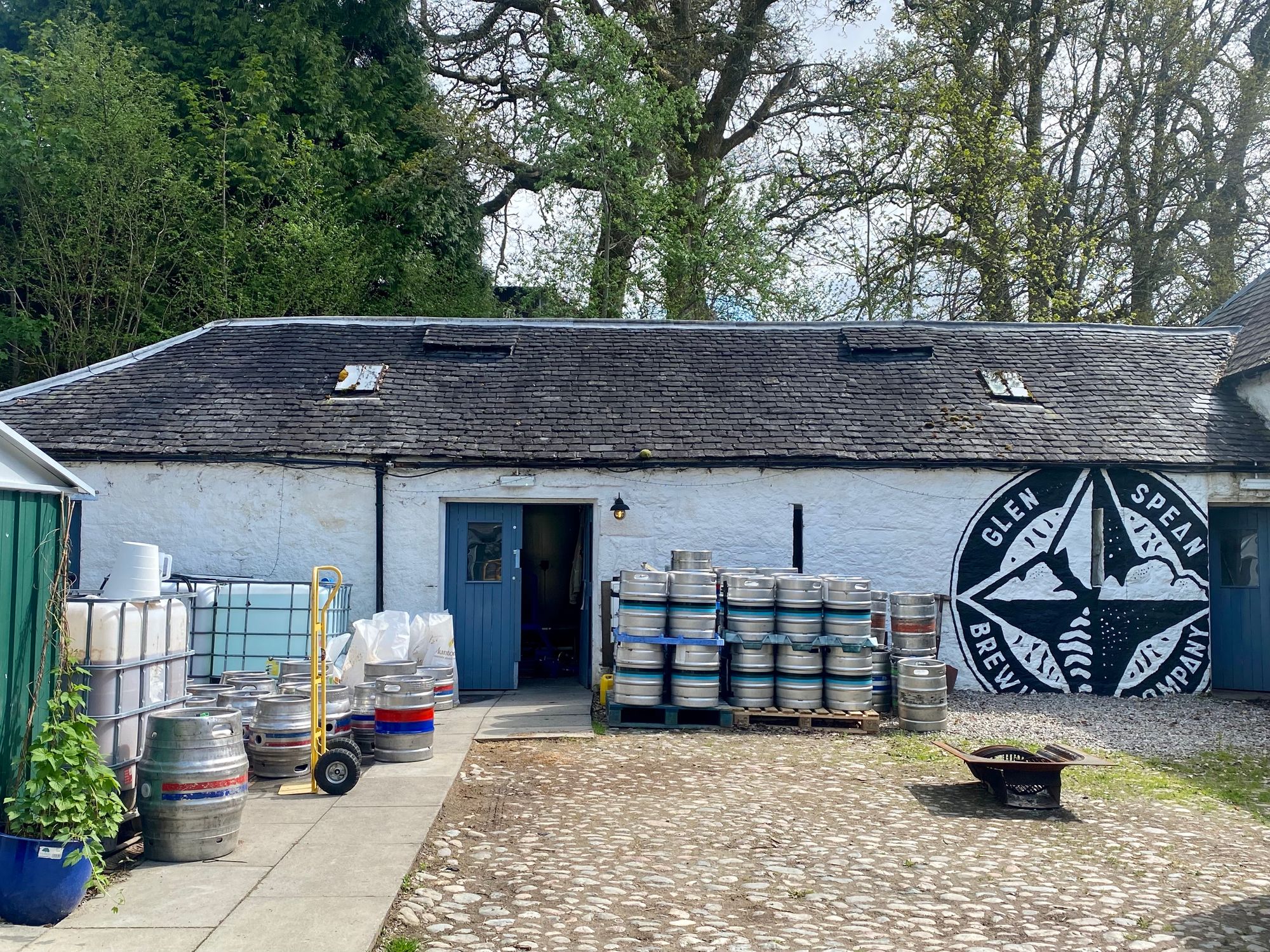
When I glanced at their stocklist, they distribute kegs and/or bottles to over 90 different locations in Scotland, staying mostly in the Highlands and definitely in-country, but their brewery itself (while picturesque with little lambs jumping and kicking right next to it) is just a brewery, no fancy tap room or high-end food.
I have to wonder if this is because that ‘eat, drink, and be merry’ atmosphere is already supplied by the local pubs in the UK. They don’t need big, modern, faux-industrial spaces to sample beer; they have their “local”, which increasingly has more and more craft beer, and less and less imports or major distributors.
Second, another interesting aspect is the the hyper-locality of it all. The ‘small brewery supplies a few kegs to the village pubs within 5-20 miles’ situation just seems so local. And maybe I’m thrown off by the scale of Scotland versus the U.S. here because, as an example, Scotland’s population is now just under 5.5 million people and Wisconsin as a state has just about 5.8 million people. To brew and distribute beer around the U.S. seems more impersonal and expansive to me. I like the local, “I know all the pub owners by name” feel that the Scottish breweries have. It feels like they’re in it together, not completing against other breweries or beverage companies.
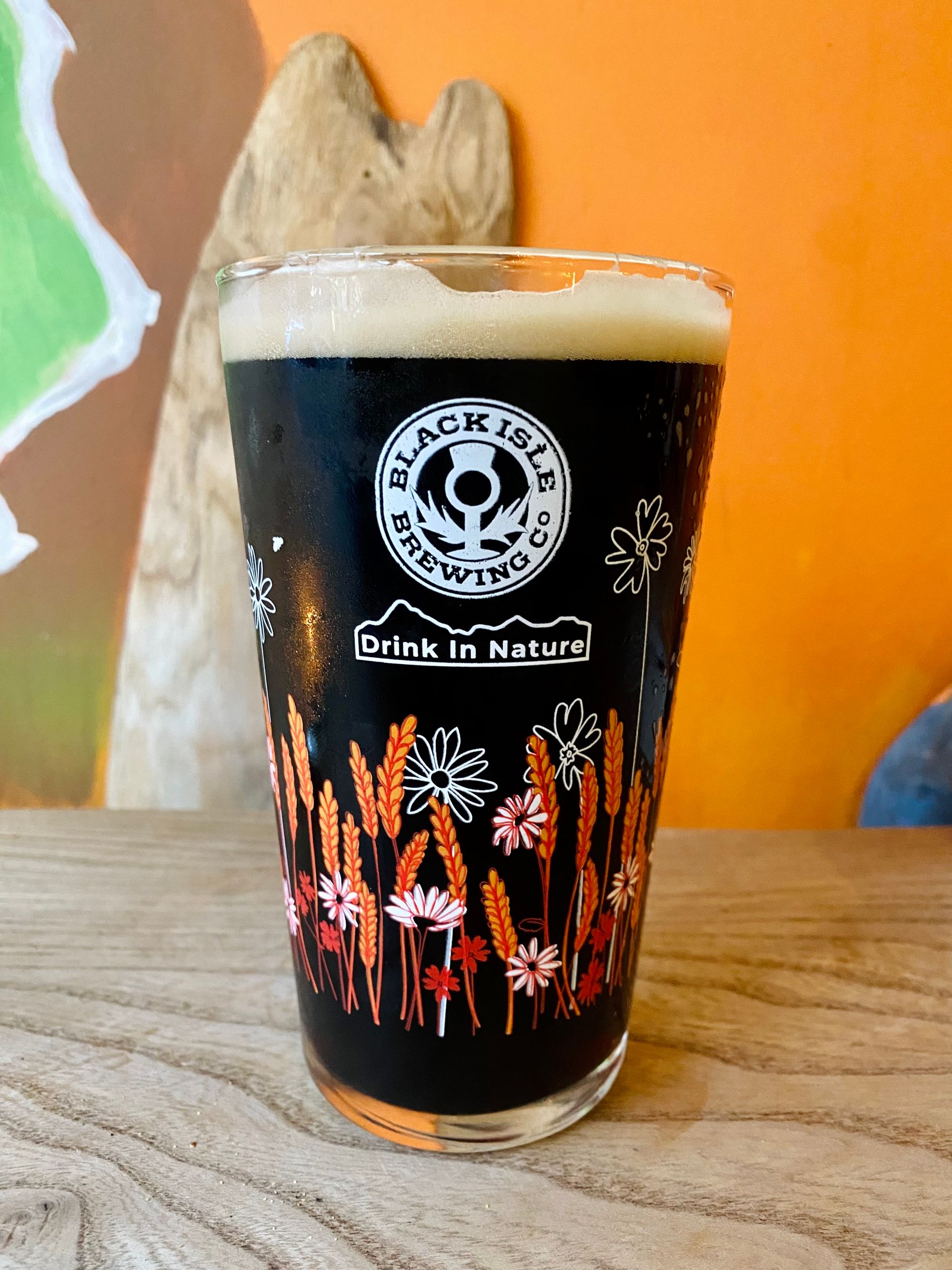
Third, the only large tap room we did go to attached to a craft brewery was also an up-and-coming Scotch distillery. In the past, many distilleries that focus on whisky will open and immediately release a vodka or gin for consumption as their whiskies are aging and maturing (remember, whisky has to be in a barrel for at least three years to be considered a Scotch whisky). This makes sense as you can still be using your fancy distilling equipment but can get something to the public faster, since vodka and gin don’t need aging.
However, our bartender said the gin market in Scotland is completely saturated; it’s a bubble about to burst. So instead of putting out a gin right away, they are sticking to whisky and opened a brewery to fill in those gap years.
I’ve heard of a winery + distillery combo before (hello Wollersheim), but I’ve never heard of a brewery + distillery combo. It’s an interesting take on how to use those gap years before the whisky can be released, and I’m thinking we might see more of these combos pop up in the UK.
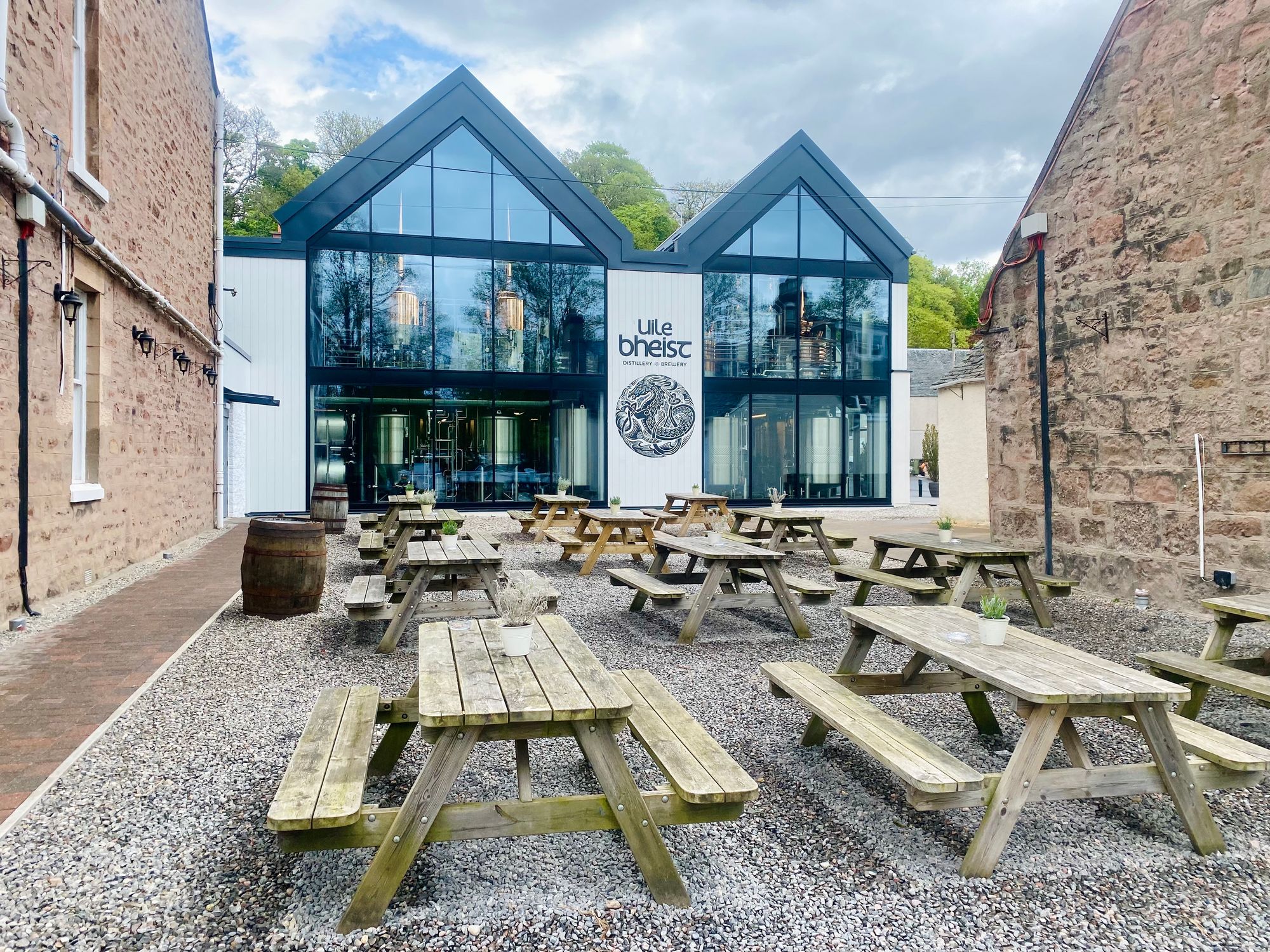
Available Abroad
Probably the most well-known Scottish ale available internationally is Tenants. And while I want to be nice (it’s the midwestern coming out in me) this is not the type of beer I was talking about in the intro when I said we had lovely craft beer throughout the Highlands.
But you can find it in the U.S. and this goes back to the hyper-locality of the beer: many of these craft breweries don’t distribute outside of Scotland, and definitely not outside of the UK.
However, there are a few others you might be able to find:
Belhaven Brewery
This brewery is based in the Scottish city from where its name is derived: Belhaven, Scotland. The brewery actually dates back to 1719 and until 2005 it was the largest and oldest surviving independent brewery in Scotland.
Unfortunately, all things must come to an end and in 2005 Greene King - a large pub retailer and brewer based in Suffolk - bought it out for £187 million.
This buy-out by a major company is probably why this beer is available in the U.S., and now you can find Belhaven Scottish Ale and Wee Heavy, a strong Scotch Ale, at major retailers.
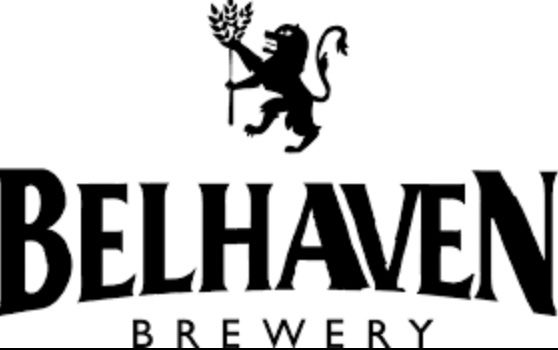
The Orkney Brewery
This is fun because the Orkney Brewery is located only 1 mile away from Skara Brae, the OG Scottish brewery we discussed earlier.
It’s owned and operated by its founder and Orcadian Norman Sinclair.
I was able to find Skull Splitter in my area, which is a wee heavy (a type of strong ale) 8.5% Scotch Ale.
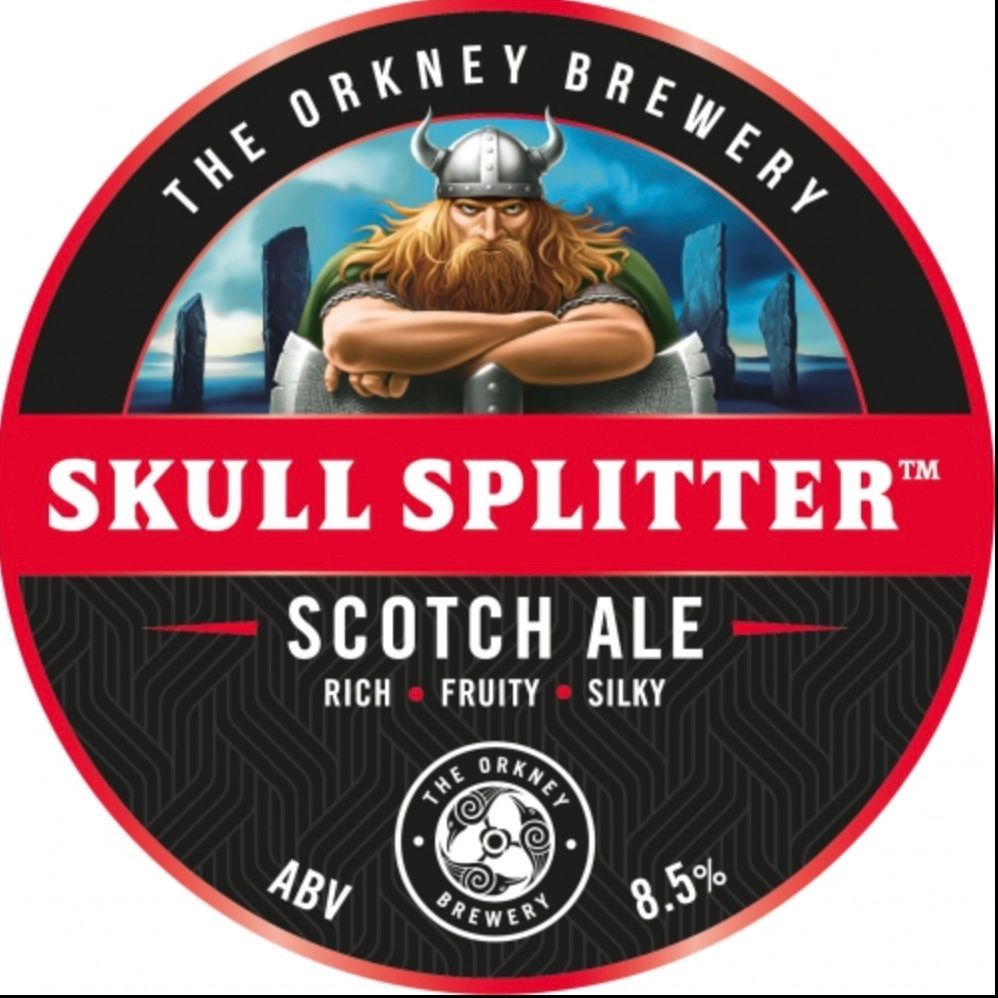
BrewDog
This is a big one. Based in Ellon, Scotland, BrewDog is actually now considered a pub chain and multinational brewery. So definitely not an example of the hyper-locality I was talking about.
Interestingly, it’s not owned by one big corporation, like many distilleries and international distributing breweries are. Its head brewers still hold a big share of the company; the other portion being owned by a private equity firm, company board members, and the public.
In 2023, BrewDog announced a partnership with Budweiser China to start expanding into that market. So there’s no slowing down for this one!
I was able to find two of their beers available in my area with some snooping: a grapefruit infused IPA called Elvis Juice and a Hazy IPA called Fellowship IPA. Yes, it’s LOTR themed… maybe pick up a 6-pack for your next watch through?

Weekly Adventure
Maybe Scotch ales aren’t your thing, but go on an adventure this week to see what beers from Scotland you can find! Make it a treasure hunt! With a delicious beer at the end being the treasure, of course.
Cheers,
Molly
References
https://www.stonepages.com/news/archives/000123.html
http://www.scottishbrewing.com/history/history.php
https://camra.org.uk/learn-discover/the-basics/
https://www.solosophie.com/best-scottish-local-beers/
https://www.absoluteescapes.com/blog/10-of-the-best-breweries-on-the-scottish-craft-beer-trail/
https://en.wikipedia.org/wiki/List_of_breweries_in_Scotland
https://www.orkneybrewery.co.uk/
https://en.wikipedia.org/wiki/Belhaven_Brewery